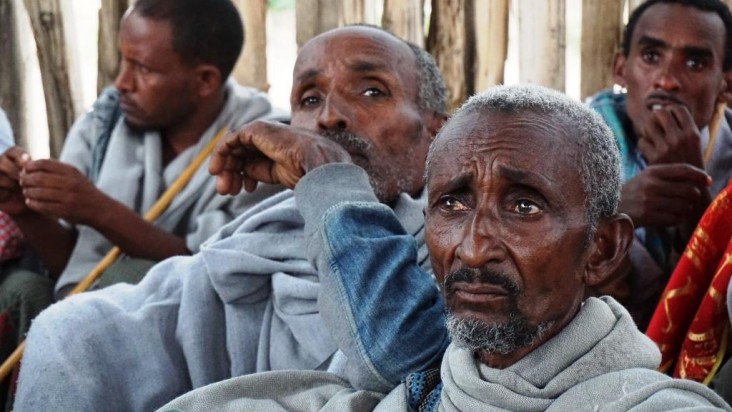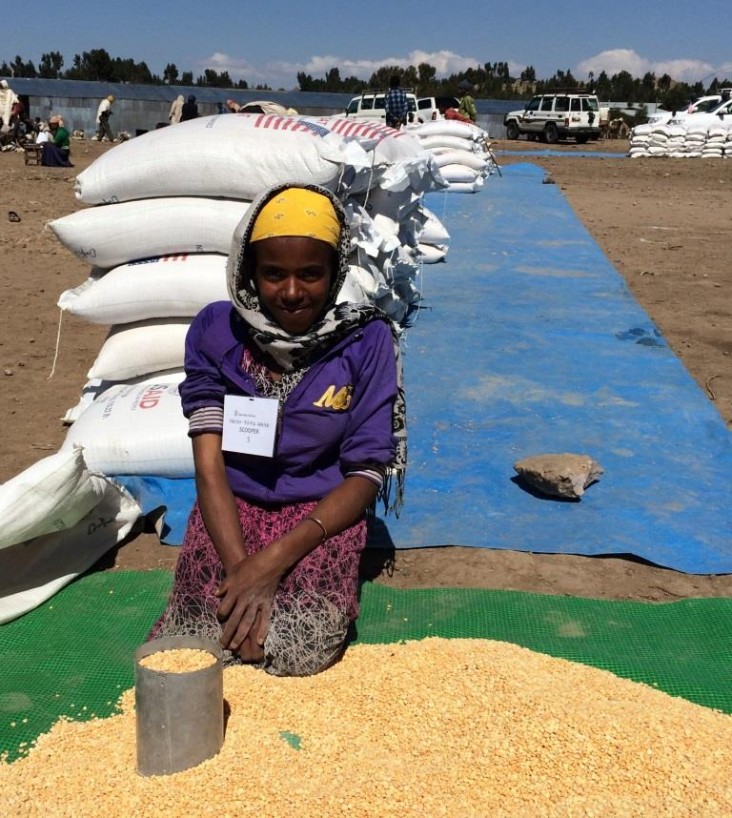
For Immediate Release
Addis Ababa - The U.S. Agency for International Development (USAID) announced an additional $88 million in humanitarian assistance for Ethiopia today to address the humanitarian crisis resulting from the impacts of the El Niño phenomenon. The additional aid brings the total U.S. humanitarian assistance for Ethiopia to more than $435 million since October 2014 and increases funding for nutrition, food, sanitation, and hygiene support.
By early 2016, the Government of Ethiopia estimates that 10.2 million people will need food assistance. This is in addition to 7.9 million chronically food insecure covered by its Productive Safety Net Program (PSNP), which is supported by USAID and the donor community. Approximately 5.8 million people will need clean water, 1.7 million children and lactating mothers will require nutritious food supplements, and as many as 435,000 children will require treatment for severe acute malnutrition in 2016.

Earlier this week, U.S. Ambassador to Ethiopia Patricia M. Haslach and Irish Ambassador to Ethiopia Aidan O'Hara joined Save the Children Country Director John Graham to see and hear firsthand how the drought is affecting local residents in woredas in North Wollo, Amhara Region of Ethiopia. During the visit, the ambassadors visited the Estayesh food distribution site in the Denkena Kebele of Meket Woreda. Supported through USAID’s Joint Emergency Operation (JEOP), a Catholic Relief Services-led consortium, Save the Children and Food for the Hungry/Ethiopia are providing emergency assistance to more than 26,000 people in the woreda. In Denkena, 4,000 people currently receive food assistance. The Humanitarian Requirements Document (HRD) forecasts that 39,087 beneficiaries in this woreda will require emergency assistance during the next nine months, or roughly 16 percent of the total woreda population. During a group discussion with the local community, the ambassadors heard that food assistance arrived just in time—as many community members were planning to leave the area.
The ambassadors visited Kobo Woreda, which was one of the areas worst hit by the 1984 famine, and participated in a group discussion with local residents and kebele officials. Kobo is classified as a hot spot woreda and receives support though the PSNP and relief from Save the Children through USAID’s JEOP. According to the HRD, approximately half of the 200,000 residents of the woreda will require nine months of emergency assistance. Residents of woreda expressed their appreciation for the assistance they are receiving from the Government of Ethiopia and international donors, but also voiced their concerns about the coming year. Many farmers told the ambassadors that their crops had failed and voiced their frustration about not being able to feed their families without assistance.
USAID is utilizing all available options to transport assistance as quickly as possible, including the use of prepositioned commodities. USAID is expanding nutrition support and food assistance and helping partners to jumpstart pipelines of relief supplies, helping provide much needed aid for peak needs during the June to September 2016 lean season. Overall, USAID is supporting 3.9 million Ethiopians with emergency food assistance through non-governmental organizations and the World Food Program. Ambassador Haslach stated, “The U.S. Government and the American people have been making both food and non-food assistance contributions in an early and robust manner. We remain committed to helping Ethiopia deal with the natural phenomenon of the El Niño effect.
The United States commends the Government of Ethiopia for its early and appropriate response to the crisis, including providing $297 million in relief resources. In addition to mobilizing resources to help the Government of Ethiopia to provide emergency relief in response to the current situation, the United States and its partners will continue to work with Ethiopians to build long-term resilience and food security.
See also
U.S. Response to the Ethiopian Drought







Comment
Make a general inquiry or suggest an improvement.